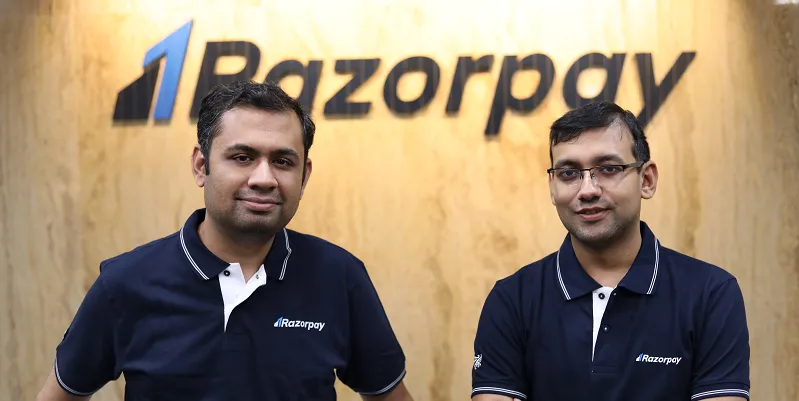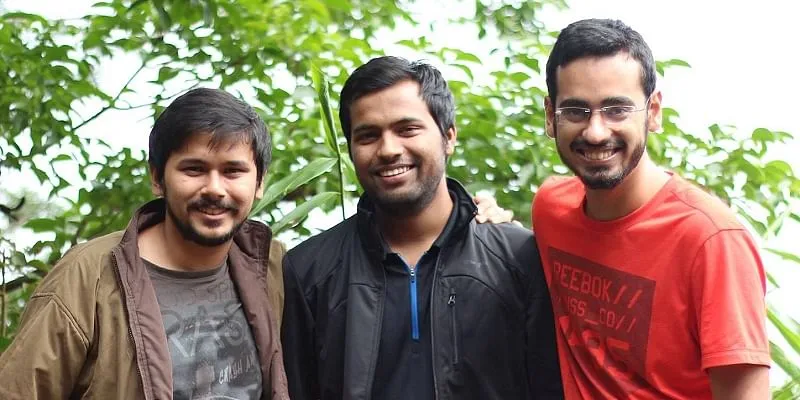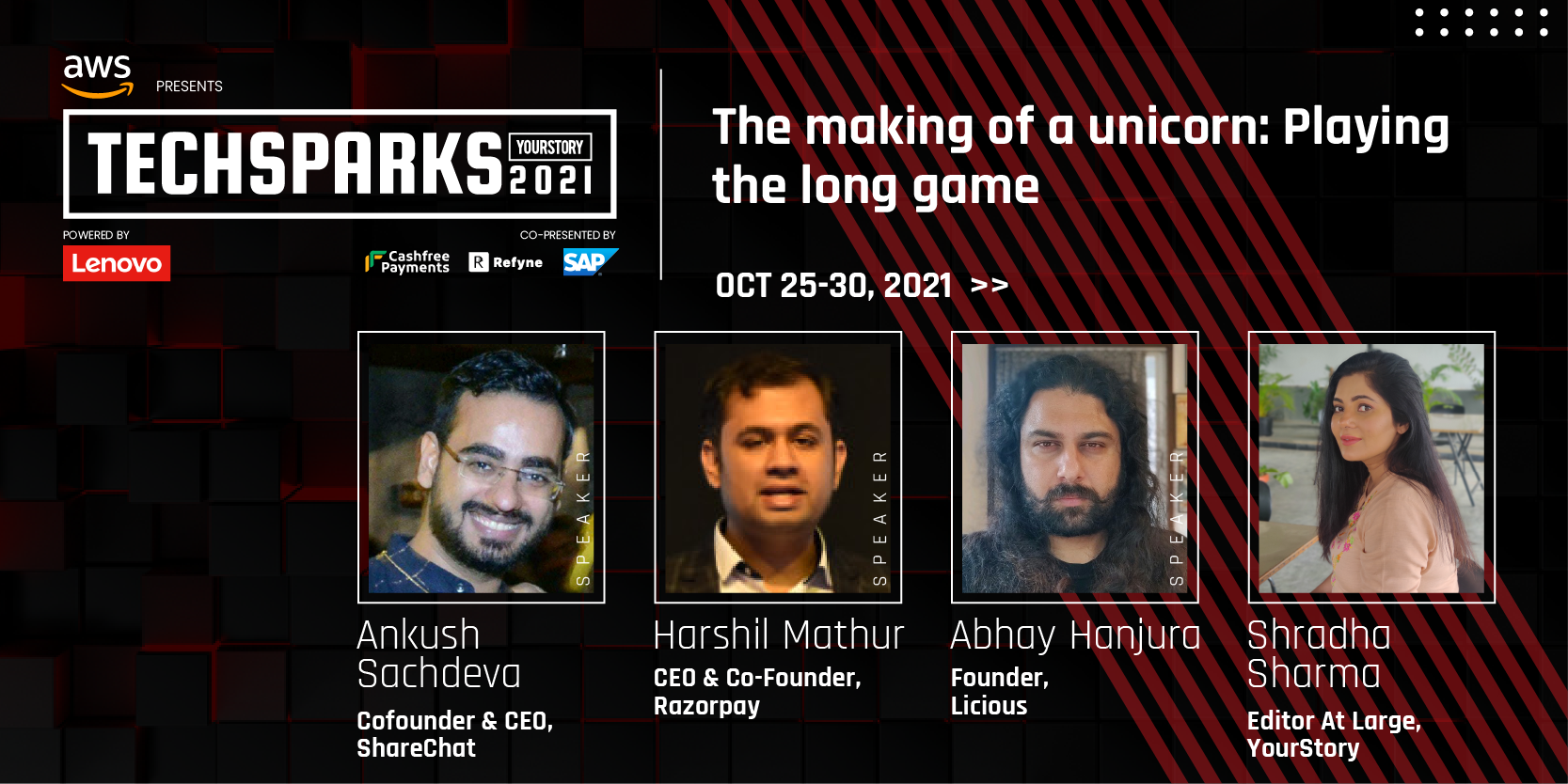What does it take to build high growth engine unicorns
At the Grand Finale of TechSparks 2021, co-founders and CEO’s of Razorpay, Harshil Mathur; ShareChat, Ankush Sachdeva, and Licious, Abhay Hanjura talk about building high growth engines.
With 34 unicorns created in ten months of the 2021, the year is definitely turning out to be the year of Indian unicorns. While it takes a lot for startups to elevate to the billion-dollar-valuation club, there are several moving parts that make sure that these organisations function in a smooth and efficient manner.
At the Grand Finale of the 12th edition of TechSparks, India's most influential startup-tech conference hosted by YourStory, Harshil Mathur, Co-founder and CEO, , Ankush Sachdeva, Co-founder and CEO, , and Abhay Hanjura, gathered at a virtual roundtable with Shradha Sharma, Founder and CEO, YourStory, where the trio opined that the speed of the engine is defined by factors beyond valuations and fund raises.
Create the right climate and keep it simple
' Abhay opined that being a unicorn, or not being one, doesn’t define the speed of the engine. "It has to do with your aspiration as an entrepreneur and as a collective what you are looking to do," he said. "That guides the velocity of the engine and what horsepower and speed that it needs to take.”
He explained if one allows a particular label to guide how they fight a battle or war, it makes things tough.
Part of the secret sauce is also around finding the right people and ensuring that they are as excited about the simple things as founders are. "Today we are spectators as we see how the engine is really chugging along," said Abhay. “Too much is made of what entrepreneurs contribute, as founders etc. But at this stage it is always about the team,” he added.
“It becomes harder to remember the simple stuff as you become bigger and that is the story of life. As children we are always taught simple things but as we become adults we find it harder to do those simple things, but you have to focus on the simple things,” Abhay added.
If an organisation can keep doing the simple things that it originally believed in and keep doing that in scale, it is where the engine will move at the velocity its consumers deserve. It all starts from there," said Abhay.

Founder needs to don the HR hat
's Harshil opined that as the organisation starts scaling, the founders' role becomes that of a super HR head and making sure that people are motivated in doing the right things.
“There is very little that you can contribute on a daily basis, except making sure that people know the vision and direction. In the end of the day it is the people on the team who execute it.," said Harshil.
Harshil also added that, on a daily basis, he aims to do things without fail. First important thing is ensuring that culture does not change. "The things that got us here should not get diluted over time," he said. "The people should continue to work the same way culturally while their roles may keep changing. The core culture doesn't change,” Harshil added.
The second important thing is unblocking people. With the culture you ensure that people are doing things with the right intent, Harshil opined. But even if people are doing things with the right intent, at scale people will have issues because somebody wants to do something and they get blocked because of people, process, and policies.
“And as a founder your role is to unblock people and understand why it isn’t happening? And get in there and unblock people. The engine is run by the people, my role is to ensure that it runs smoothly,” says Harshil.

Razorpay founders: Harshil Mathur and Shashank Kumar
Steering the large ship together
Adding an anecdote on culture, 's Ankush explained that when you are small (organisaiton), you are essentially like a small boat you are running on your own where you can change the direction overnight.
“And as a big organisation you are a large ship and it is really hard to move the direction. You have to align and confirm it with everyone and you have to take a very long deep conviction bet that this is where we want to be. I think that the biggest change we see is that we are forced to think very long term,” said Ankush.
When you are big, you by default are forced to think long term. And real magic happens when 1000s of really smart people work every single day towards one direction. That is when you move mountains, said Ankush.
That is one big shift, and we as founders have to be very sure that the direction we have picked is going to determine a lot of things in terms of investors, employees, etc, and has to be out of deep conviction.

Founders of ShareChat
Bringing in consistency of messaging
While this sounds good, getting highly talented individuals, and moving them in a desired direction is not a simple task. It begins with consistency of messaging.
“Once you have taken the path together, it becomes important to communicate. And saying the same thing over and over again,” said Abhay.
He explains long terms usually come with crests and troughs. “And you need to say the same thing through the crests and troughs. That is when things become authentic and believable,” Abhay added.
Also, in Abhay's view, it is also about collective commitment. For that you need to get people in on decisions versus taking unilateral calls. People become accountable to decisions when they are part of that decision or when they co-create a decision.
Defining the Northstar
According to Harshil, it is essential to keep showing your team the northstar. "In the everyday fights people keep forgetting the Northstar, and you have to keep telling people that and reiterate it over and over again," he said. "In every meeting you may be saying the same thing but in every meeting it is important to go in and say the same thing over and over again" Harshil added.
Harshil also added that another important thing is the organisational design. "A lot of times, you start a company, you add people, and keep adding people. And suddenly there is chaos, and people wonder what are the boundaries and where is my charter and then there are a lot of conflicts," said Harshil.
“And then you build an org structure in a reactive way. But at a certain scale you need to start becoming proactive and understand what you will face in the next few years and where the challenges will start coming in. It is about running the engine in the right direction,” explains Harshil.
Over communicate to the point of boredom
Ankush opined that communication is one thing that even he cannot stress enough on. "Unless you are getting bored as a founder, speaking the same thing you are not communicating enough," he said. "You should be so repetitive that you start getting bored."
In the current remote working environment, the need for communication has gone much higher.
Also, in Ankush's view, 'everyone has to be aligned' is great in theory, but in practice it is a messy chaotic thing. He explained that it would start with an annual plan on what are the organisation's big bets. This is the large scope they have in the industry, given where they are, but what are the big bets?
"There should be thorough debates, and you need to challenge assumptions, where leaders would have to go down and chat with the teams and understand how much confidence do we have in the assumption and come back to the table, and spend two to three weeks doing that and come up with the big bets" added Ankush.
Edited by Rajiv Bhuva










![[YS Exclusive] Whiteboard Capital commits up to Rs 100Cr more to invest in hardware startups to boost ‘Made in India’ drive](https://images.yourstory.com/cs/2/a0bad530ce5d11e9a3fb4360e4b9139b/SandeepTandon-01-1594465927166.png)
![[Funding alert] Social network platform FLYX raises $200K in pre-seed funding](https://images.yourstory.com/cs/2/e641e900925711e9926177f451727da9/Imagefn2r-1594703861955.jpg)

